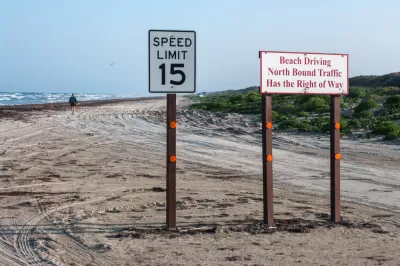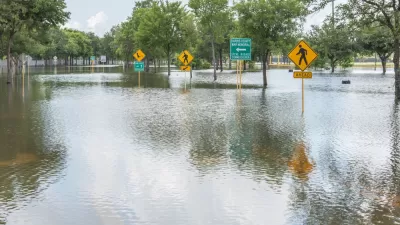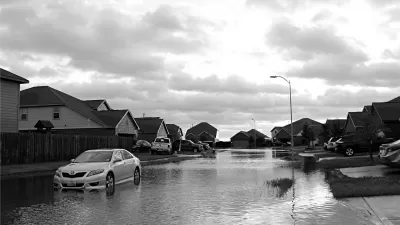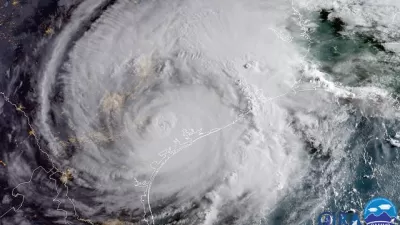In a new book, lawyer Jim Blackburn suggests that engaging private landowners is the only way to manage the coast of his home state.

Hurricane Harvey brought up a number of questions for residents of the Gulf Coast of Texas. Was the damage so severe because of zoning, or sprawl, or climate change? Is it better to rebuild or buy out? Is a storm just as severe inevitable?
And more than anything, how do we keep this from happening again?
Environmental lawyer Jim Blackburn presents one strategy in his new book, A Texan Plan for the Texas Coast, calling “not for greater regulation but for new markets.”
There are several unique attributes of the Gulf Coast of Texas that make a private-sector approach to management the strongest, according to the author, who leads a research group at Rice University called the Severe Storm Prevention, Education, and Evacuation from Disasters Center (SSPEED).
“The Texas Gulf coast is one of the least regulated of U.S. coastal areas. Blackburn attests that without federal environmental law (Clean Air Act and Clean Water Act) and the Army Corps of Engineers, for which he taught in the 1980s, there would be no environmental law on the Texas coast. Since 1972, when Texas rejected the federal regulations and funding of the Coastal Zone Management Act (CZMA), the state has more or less managed its own coast.”
A related attribute is that 80 percent of the land along the Texas Gulf Coast is privately owned. Private property rights in Texas are sacred, so that’s unlikely to change.
“In a market economics based approach, private landholders would sell carbon sequestration credits to corporations in the form of (unregulated) commodity contracts. The consumer would then, ostensibly, purchase such products branded as carbon-neutral.”
Not everyone believes that a voluntary system would be effective, but “Blackburn is optimistic. In his view, eco-services of ranching, birding, and fishing would continue to be maintained through private litigation, entrepreneurship, competition, and personal commitment."
FULL STORY: BOOK ON THE TEXAS GULF COAST OFFERS ‘TEXAN PLAN’

Alabama: Trump Terminates Settlements for Black Communities Harmed By Raw Sewage
Trump deemed the landmark civil rights agreement “illegal DEI and environmental justice policy.”

Planetizen Federal Action Tracker
A weekly monitor of how Trump’s orders and actions are impacting planners and planning in America.

Why Should We Subsidize Public Transportation?
Many public transit agencies face financial stress due to rising costs, declining fare revenue, and declining subsidies. Transit advocates must provide a strong business case for increasing public transit funding.

Understanding Road Diets
An explainer from Momentum highlights the advantages of reducing vehicle lanes in favor of more bike, transit, and pedestrian infrastructure.

New California Law Regulates Warehouse Pollution
A new law tightens building and emissions regulations for large distribution warehouses to mitigate air pollution and traffic in surrounding communities.

Phoenix Announces Opening Date for Light Rail Extension
The South Central extension will connect South Phoenix to downtown and other major hubs starting on June 7.
Urban Design for Planners 1: Software Tools
This six-course series explores essential urban design concepts using open source software and equips planners with the tools they need to participate fully in the urban design process.
Planning for Universal Design
Learn the tools for implementing Universal Design in planning regulations.
Caltrans
Smith Gee Studio
Institute for Housing and Urban Development Studies (IHS)
City of Grandview
Harvard GSD Executive Education
Toledo-Lucas County Plan Commissions
Salt Lake City
NYU Wagner Graduate School of Public Service





























